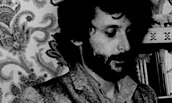Wikipedia:Today's featured article
|
Today's featured article Each day, a summary (roughly 975 characters long) of one of Wikipedia's featured articles (FAs) appears at the top of the Main Page as Today's Featured Article (TFA). The Main Page is viewed about 4.7 million times daily. TFAs are scheduled by the TFA coordinators: Wehwalt, Dank and Gog the Mild. WP:TFAA displays the current month, with easy navigation to other months. If you notice an error in an upcoming TFA summary, please feel free to fix it yourself; if the mistake is in today's or tomorrow's summary, please leave a message at WP:ERRORS so an administrator can fix it. Articles can be nominated for TFA at the TFA requests page, and articles with a date connection within the next year can be suggested at the TFA pending page. Feel free to bring questions and comments to the TFA talk page, and you can ping all the TFA coordinators by adding " |
Featured article candidates (FAC) Today's featured article (TFA):
Featured article tools: |
From today's featured article
Stanley Price Weir (23 April 1866 – 14 November 1944) was a public servant and Australian Army officer. During World War I, he commanded the 10th Battalion of the Australian Imperial Force during the landing at Anzac Cove and the Gallipoli campaign against the Ottoman Turks, and during the battles of Pozières and Mouquet Farm in France. Weir returned to Australia at his own request at the age of 50 in late 1916, when he was appointed as the first public service commissioner of South Australia. In 1917 he was awarded the Distinguished Service Order and was mentioned in despatches for his performance at Pozières and Mouquet Farm. On his retirement from the Australian Military Forces in 1921, he was given an honorary promotion to brigadier general, only the second officer born in South Australia to reach this rank. Before his retirement from public service in 1931, Weir was the chairman of both the Central Board of Health and the Public Relief Board. (Full article...)
From tomorrow's featured article
Blair Peach died on 24 April 1979 after an anti-racism demonstration in Southall, London, England. Peach, a New Zealand teacher and activist born in 1946, had taken part in an Anti-Nazi League demonstration against a National Front election meeting in Southall Town Hall. An investigation by Commander John Cass of the Metropolitan Police Service concluded that Peach had been fatally hit on the head by an officer of the service's Special Patrol Group, and that other officers had obstructed the investigation. Excerpts from a leaked copy of the report were published in early 1980. In 1988 the Metropolitan Police paid £75,000 compensation to Peach's family. The full report was not released to the public until 2009, after a newspaper vendor died from being struck from behind by a member of the Territorial Support Group, the Special Patrol Group's successor organisation. An award in Peach's honour was set up by the National Union of Teachers, and a school in Southall is named after him. (Full article...)
From the day after tomorrow's featured article
Vance Drummond (1927–1967) was a New Zealand–born Australian pilot who fought in the Korean and Vietnam Wars. Posted to No. 77 Squadron in Korea, he flew Gloster Meteor jet fighters and earned the US Air Medal for his combat skills. He was shot down in 1951 and imprisoned for almost two years. He was awarded the Air Force Cross in 1965 after leading the Black Diamonds aerobatic team of No. 75 Squadron. Drummond was promoted to acting wing commander in 1965 and posted to South Vietnam on staff duties with the US Air Force. He joined their 19th Tactical Air Support Squadron, operating Cessna Bird Dog aircraft, as a forward air controller in July 1966. That month he earned the Distinguished Flying Cross for his part in rescuing a company of soldiers surrounded by Viet Cong forces. Returning to Australia, he took command of No. 3 Squadron in February 1967. His Dassault Mirage IIIO crashed into the sea during a training exercise in May; neither Drummond nor the aircraft was found. (Full article...)



